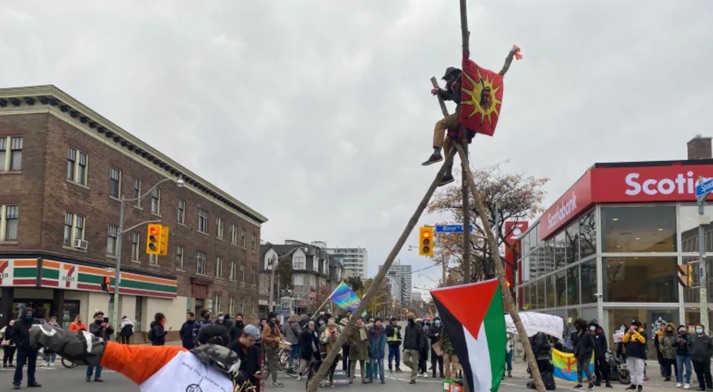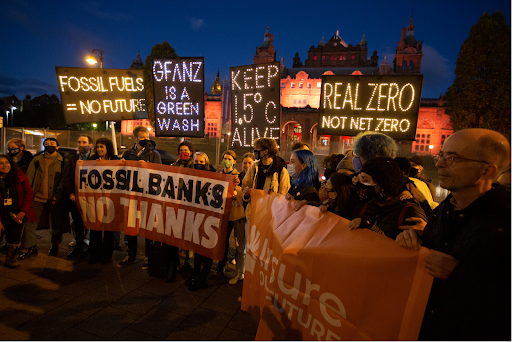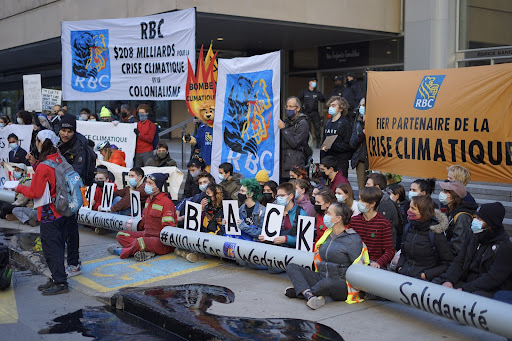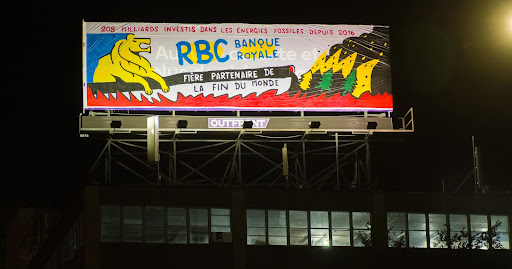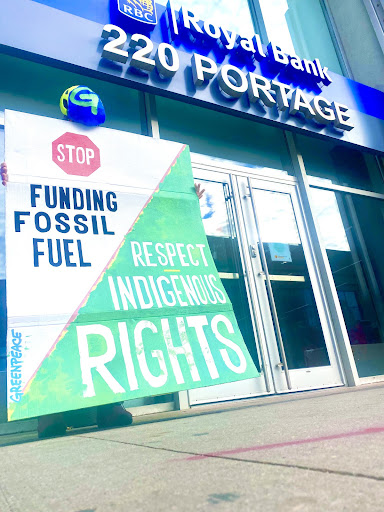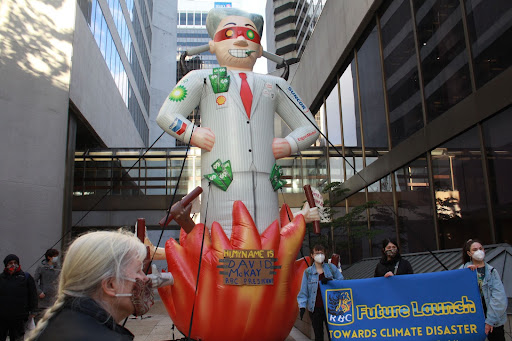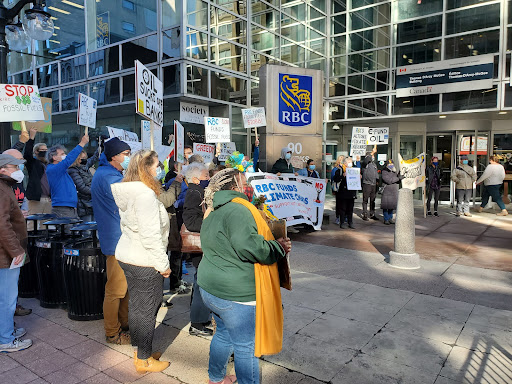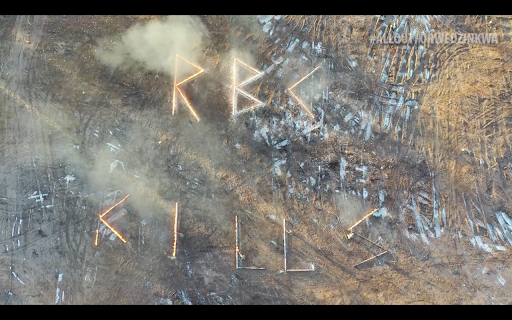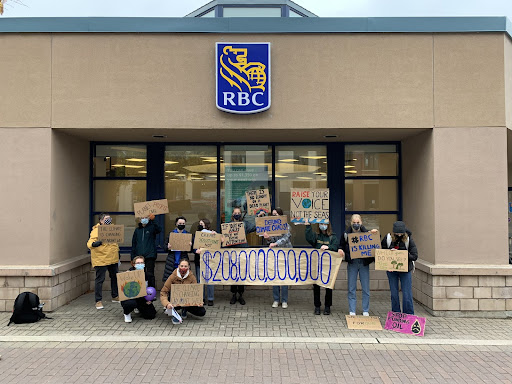Showing support for the Wet’suwet’en
As news spread of the latest militarized RCMP invasion of Wet’suwet’en territory and the arrests of peaceful protesters and even independent media, many partners in the RBC / Canadian fossil banks campaign decided to direct their attention and resources to help with coordination and amplification of efforts led by the land defenders.
For those wanting more background on the stakes of this effort – members of the community standing in the way of a $6.6B pipeline that would support a $40B gas export facility – and the legal rights the Wet’suwet’en hereditary chiefs have, check out this excellent article in the National Observer.
Many NGO’s and grassroots groups and individuals have supported three tracks of work.
Digital media support
The Canada banks campaign lent social media channels and advertising funds to support a digital media campaign targeting funders of the Coastal GasLink Pipeline as well as raising awareness of the violence by RCMP among mainstream audiences. They also amplified solidarity actions happening around the world.
Coordination hub
At the time of the crisis, the Canada banks campaign network was meeting twice a month. Network coordinators decided to use this space as a hub for ENGOs and other allies to coordinate their support. Multiple work streams have come out, including support for a convoy, digital, fundraising, and a day of action on the 20th of December.
Grassroots organizing
Banks campaign organizers connected grassroots groups in Montreal and Toronto with land defenders from the Wet’suwet’en and Kanien’kehà:ka nations to absorb the momentum generated by the crisis and direct organized groups to the work of allyship. As of the 8th of December, a network of dozens of new affinity groups across the country has been built, ready to learn more about the issues and take action from the leadership of land defenders.
For more on the funders of the Coastal Gas Link pipeline, including RBC, check out this great resource from Stand.
Below is an action on October 29 as part of 35 actions across Canada and around the world targeting the funders of the climate emergency.

